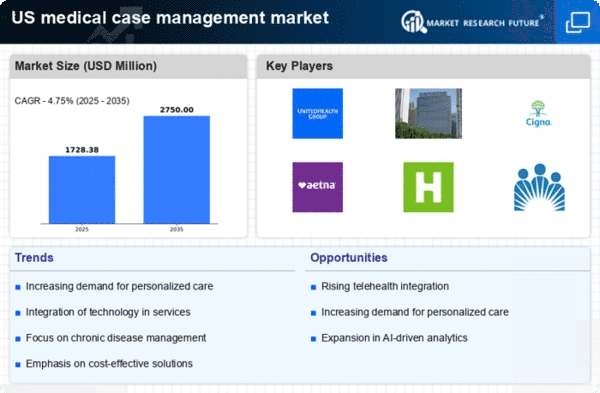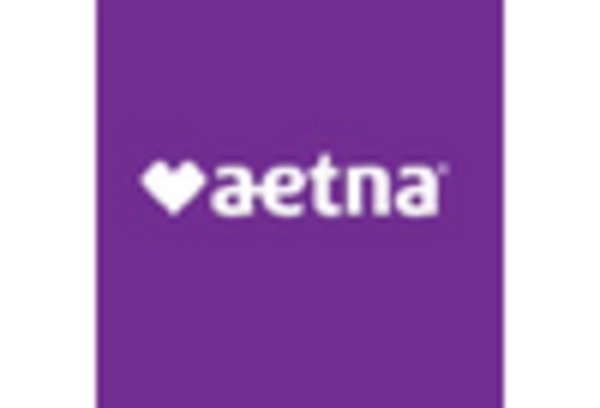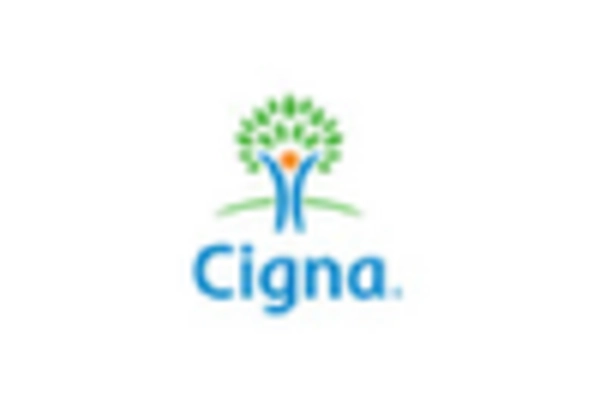Aging Population
The demographic shift towards an older population in the US is significantly impacting the medical case-management market. By 2030, it is projected that around 20% of the US population will be aged 65 and older, leading to an increased prevalence of chronic conditions that require comprehensive case management. This aging demographic necessitates tailored care strategies to address complex health needs, thereby driving demand for medical case-management services. As healthcare providers adapt to this trend, the market is likely to expand, offering innovative solutions to manage the health of older adults effectively.
Regulatory Changes
Ongoing regulatory changes in the US healthcare landscape are influencing the medical case-management market. Policies aimed at improving care coordination and patient outcomes are prompting healthcare organizations to enhance their case-management capabilities. For instance, the implementation of the Affordable Care Act has led to increased focus on preventive care and chronic disease management, which are integral to effective case management. As regulations evolve, healthcare providers are compelled to adapt their practices, thereby creating opportunities for growth within the medical case-management market.
Rising Healthcare Costs
The escalating costs associated with healthcare in the US are driving the medical case-management market. As healthcare expenditures continue to rise, patients and providers are increasingly seeking efficient case-management solutions to optimize resource allocation and reduce unnecessary spending. In 2023, healthcare spending in the US reached approximately $4.3 trillion, accounting for nearly 18% of the GDP. This financial pressure compels healthcare organizations to adopt case-management strategies that enhance patient outcomes while controlling costs. The medical case-management market is positioned to grow as stakeholders prioritize cost-effective care delivery models.
Technological Advancements
Technological advancements are reshaping the medical case-management market by facilitating more efficient and effective care delivery. Innovations such as telehealth, electronic health records (EHRs), and data analytics are enabling healthcare providers to streamline case management processes. In 2025, it is estimated that the telehealth market will reach $175 billion, reflecting the growing reliance on technology in healthcare. These advancements not only improve patient engagement but also enhance the ability to monitor and manage complex cases, thereby driving the demand for medical case-management services.
Increased Focus on Patient-Centered Care
The shift towards patient-centered care is a pivotal driver of the medical case-management market. Healthcare providers are increasingly recognizing the importance of involving patients in their care decisions, which enhances satisfaction and outcomes. This trend aligns with the broader movement towards value-based care, where the quality of care is prioritized over the volume of services provided. As organizations strive to meet patient expectations, the demand for effective case-management solutions that support personalized care plans is likely to grow, further propelling the medical case-management market.
















